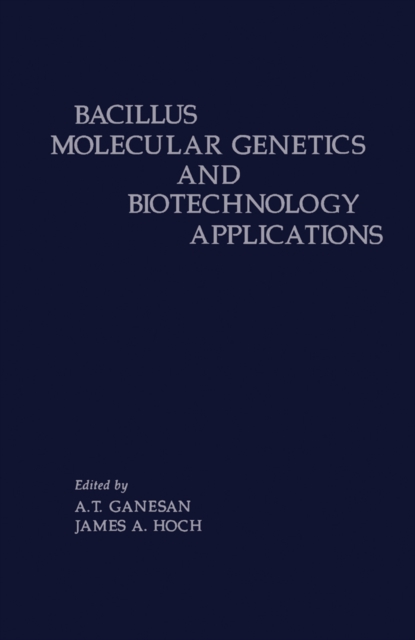
Bacillus Molecular Genetics and Biotechnology Applications PDF
by A.T. Ganesan
Description
Bacillus Molecular Genetics and Biotechnology Applications contains the proceedings of the Third International Conference on the Genetics and Biotechnology of Bacilli, held at Stanford University in Stanford, California on July 15-17, 1985.
Contributors discuss the progress that has been made concerning the molecular genetics and biotechnology of Bacillus and cover topics related to transposons and plasmids, secretion, gene cloning, and gene expression. This volume is organized into five sections encompassing 39 chapters and begins with an overview of the origin and the state of molecular genetics, along with some of the contributions microbiology has made to fundamental biology.
It then emphasizes the importance of scientifically based regulatory decisions and responsible industry actions for effective biotechnology regulation.
The chapters that follow focus on Bacillus subtilis, touching on topics such as DNA recombination in plasmids, genetic system for stabilizing cloned genes, regulation of sporulation, and non-complementing diploids.
The reader is methodically introduced to the secretion and maturation of subtilisin, cloning in streptomycetes, and genetic exchange and prospects for cloning in Clostridia.
The book concludes with a chapter that describes an integrative and amplifiable secretion vector using the inducible promoter and signal peptide from the B. subtilis levansucrase (LS) gene. This book will be of interest to geneticists, microbiologists, and biotechnologists, as well as students and researchers in the fields of molecular biology and biochemistry.
Information
-
Download - Immediately Available
- Format:PDF
- Pages:497 pages
- Publisher:Elsevier Science
- Publication Date:02/12/2012
- Category:
- ISBN:9780323138635
Information
-
Download - Immediately Available
- Format:PDF
- Pages:497 pages
- Publisher:Elsevier Science
- Publication Date:02/12/2012
- Category:
- ISBN:9780323138635






